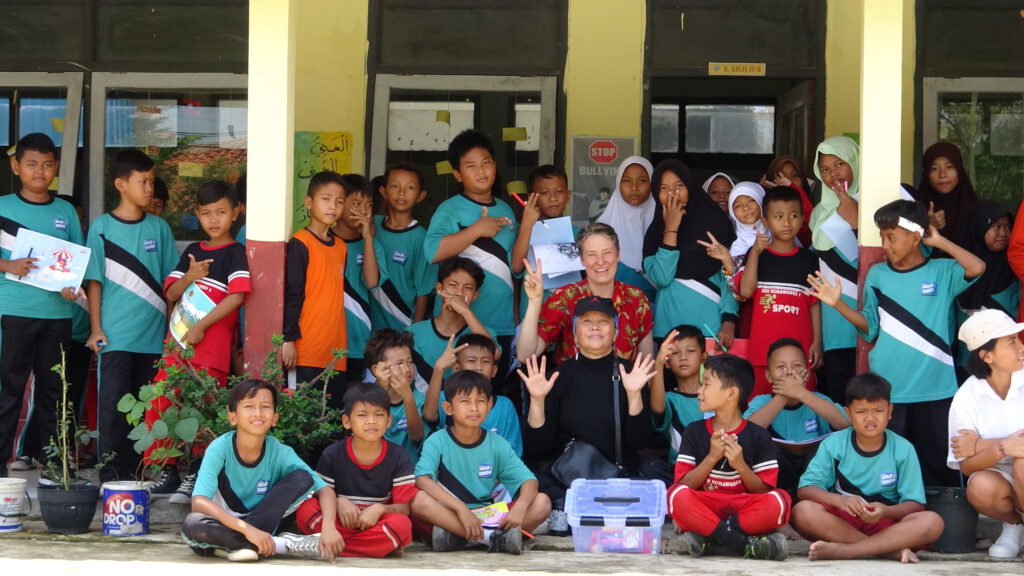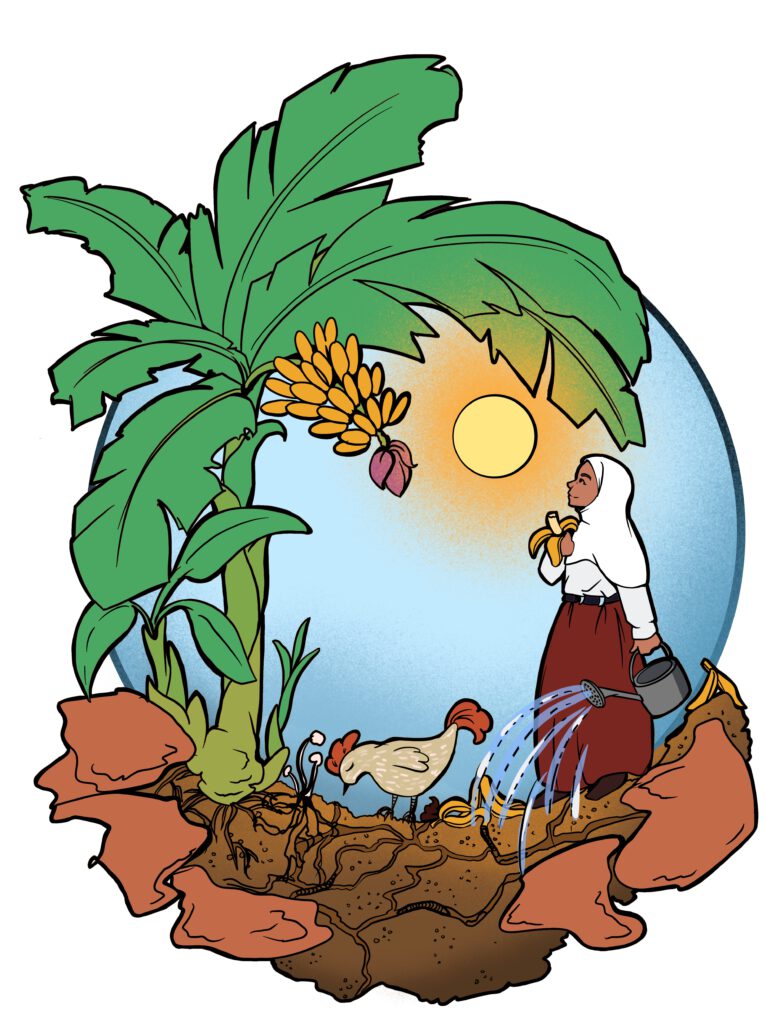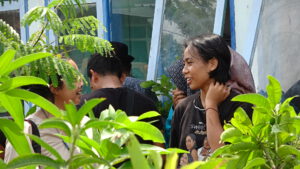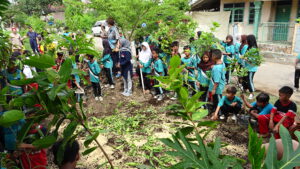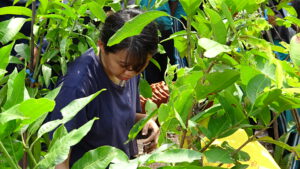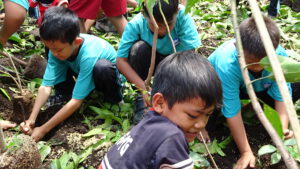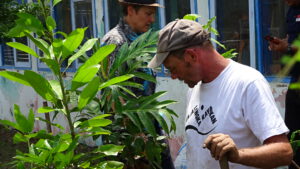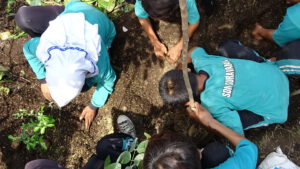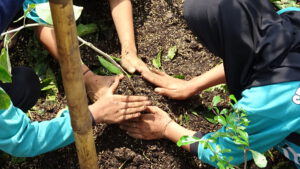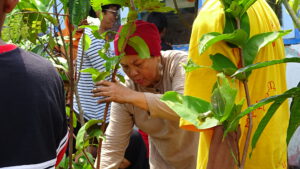JATIWANGI SCHOOL FOREST
WORKSHOP // Jatiwangi School Forest // 6th December 2023 // by Ella von der Haide, Karsten Winnemuth & Amber Theisen + Tunas Nusa Foundation & Jatiwangi Art Factory
The Perhutana project represents a robust and highly commendable journey towards a sustainable future, signifying a significant ecological transformation that will profoundly impact land use and life quality in Jatiwangi. As urban farmers from Germany, we genuinely appreciate the thoughtful strategies and initiatives that contribute to this visionary endeavor. The approach taken by JaF and the advisory network is both delightful and wise, involving the entire neighborhood, community, and all possible stakeholders.
A noteworthy illustration of this inclusive approach was witnessed during the enchanting celebration on December 6th. During this event, a green corridor was established by placing potted fruit trees along the street leading to the Perhutana land. This innovative gesture not only added beauty to the surroundings but also assigned care responsibilities to the neighbors, fostering a sense of collective stewardship. Participating in this celebration was an inspiring experience for us, as it vividly showcased the power of community involvement and collaborative efforts in shaping a more sustainable and interconnected future.
It is crucial to introduce the very young generation to soil and plant management, making the decision to establish a pocket garden in front of Surawangi Elementary School a wise and strategic move. Personally, this endeavor entailed two days of laborious digging, involving the meticulous removal of a surprising amount of plastic waste from the soil, as well as ground preparation. Concurrently, Ella and Amber orchestrated a learning unit for the pupils, educating them about ecological cycles.
Following the Miyawaki method, we meticulously filled the two beds, measuring 3x5m and 40cm deep, with in-situ soil as a foundation. A layered composition of subsoil, organic matter, and compost was then added, followed by a compost/humus layer, and finally, a mulch layer incorporating organic matter once again. The culmination of our efforts coincided with the arrival of the children, bringing with them 84 provided trees and shrubs. The subsequent planting process was not only the most joyful but also the most dynamic experience of planting I have ever encountered.
Learning about the Miyawaki method held immense value for me, especially considering its role as the foundation for the burgeoning Tiny Forest movement gaining traction in Germany. Drawing inspiration from the collaborative experiences witnessed here, involving JaF, Tunas Nusa, and exemplary practices like Masagi Koffee within our Connecting Ecosystems project, I took the initiative, in the name of Edible City, to propose the planting of a Miyawaki Tiny Forest to the Kassel planning department and the SDG-Lab of Kassel University. With this proposal, I envision the establishment of parallel processes, fostering the growth of Food Forests and Tiny Forests in both Kassel and Java. The aspiration is to share our respective experiences, learn from each other, and fortify our networks on local, regional, and international scales.
